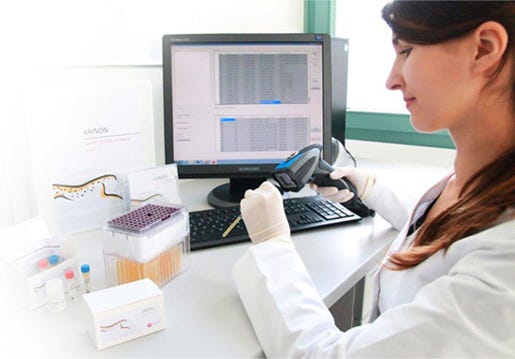In Pursuit of a Noninvasive Diagnostic for Bladder Cancer
July 28, 2017
German company numares AG is developing a noninvasive test to diagnose bladder cancer, and executives believe the technology can be used to generate other diagnostic tests.
Nancy Crotti

A German company has developed a system that uses patients' metabolites to diagnose and monitor certain cancers and indicate the probability of kidney transplant rejection.
The Regensburg company, numares AG, developed magnetic group signaling technology, integrated test-specific software and reagents to perform up to 300 diagnostic tests per day on a qualified nuclear magnetic resonance (NMR) spectrometer.
The company holds the CE Mark for the kidney rejection test, and plans to submit a paper based on the test's technical aspects and clinical outcomes shortly, according to company executives. Numares also recently reported "promising" results from a retrospective study to noninvasively diagnose bladder cancer by evaluating metabolomic biomarker networks.
For the retrospective study, numares evaluated approximately 300 urine samples from patients with and without bladder cancer to identify metabolites that could be developed into a bladder cancer-specific metabolomic network. Based on the results, numares has enrolled patients in a prospective study to confirm and further refine the metabolomic network. The company is pursuing the CE Mark for this in vitro diagnostic test and plans to launch it in Europe next year.
Bladder cancer can be challenging to diagnose. Traces of blood in a urine sample, called microhematuria, are associated with bladder cancer, but only 2% to 5% of patients with microhematuria are diagnosed with bladder cancer, according to a study published in the New England Journal of Medicine by Johns Hopkins University researchers in 2003. Most patients presenting with microhematuria undergo cystoscopy, an invasive test to rule out bladder cancer as a cause.
|
Zucker |
Numares' Axinon NMR technology provides an in vitro diagnostic by separating and quantifying these metabolic biomarkers and then recombining them into one marker that indicates the presence or absence of bladder cancer, according to numares chief medical officer Philipp Pagel.
"That's novel, because typically the physician would be left with a bunch of numbers and would have to make his own ideas about that," Pagel said.
"There is a real medical need for this type of diagnosis," added physicist Maximilian Zucker, chief technology officer at numares.
Numares also developed a machine learning software model to determine which compounds to put into a diagnostic test for a particular disease. In addition to diagnostics, Axinon can perform risk assessment, assess a pathology's origin, indicate the extent and aggressiveness of diseases, monitor therapy, and perform research into physiological processes, according to the company.
Axinon was developed to provide lab personnel with an easy-to-use system standardized to lab requirements. Standardization is essential to lab testing equipment, and achieving that standardization on an NMR took years, Zucker said. The company was founded in 2004 as a spinoff from Regensburg University's biophysics department. It secured a patent that year for a test to determine lipoproteins in body fluids (lipoprotein profiling) and secured the CE Mark for two NMR-based lipoprotein profiling tests in 2015.
The company's system is designed for central labs and large hospital-based labs that can accommodate an NMR machine and afford the price tag of up to $1 million or more for the machine, the software and the reagent kits. Numares had a "positive" non-binding pre-review with FDA at the end of May and is preparing a 510(k) application to submit by the end of 2017, Zucker said. The company would have to submit each test it develops for CE and FDA approval.
Numares is collaborating with Oxford University on the development of a diagnostic test for multiple sclerosis, according to its website. The company has a "broad pipeline" of other tests it is considering for development, Zucker said, including one for early detection of acute kidney injury.
Numares employs 70 and has offices in Boston and Singapore in addition to its home city in Bavaria. It is in the midst of a second fundraising round and has no plans for another. Zucker declined to reveal how much money the company has raised.
"The important portion is that it's a platform technology. We're not talking about one test; we're talking about a whole pipeline of tests, so the possibilities are very large," Zucker said. "It might become a very long story. You can go further and further and further, and there is no end, actually."
Nancy Crotti is a contributor to Qmed.
[Image courtesy of NUMARES AG]
About the Author(s)
You May Also Like


.png?width=300&auto=webp&quality=80&disable=upscale)
